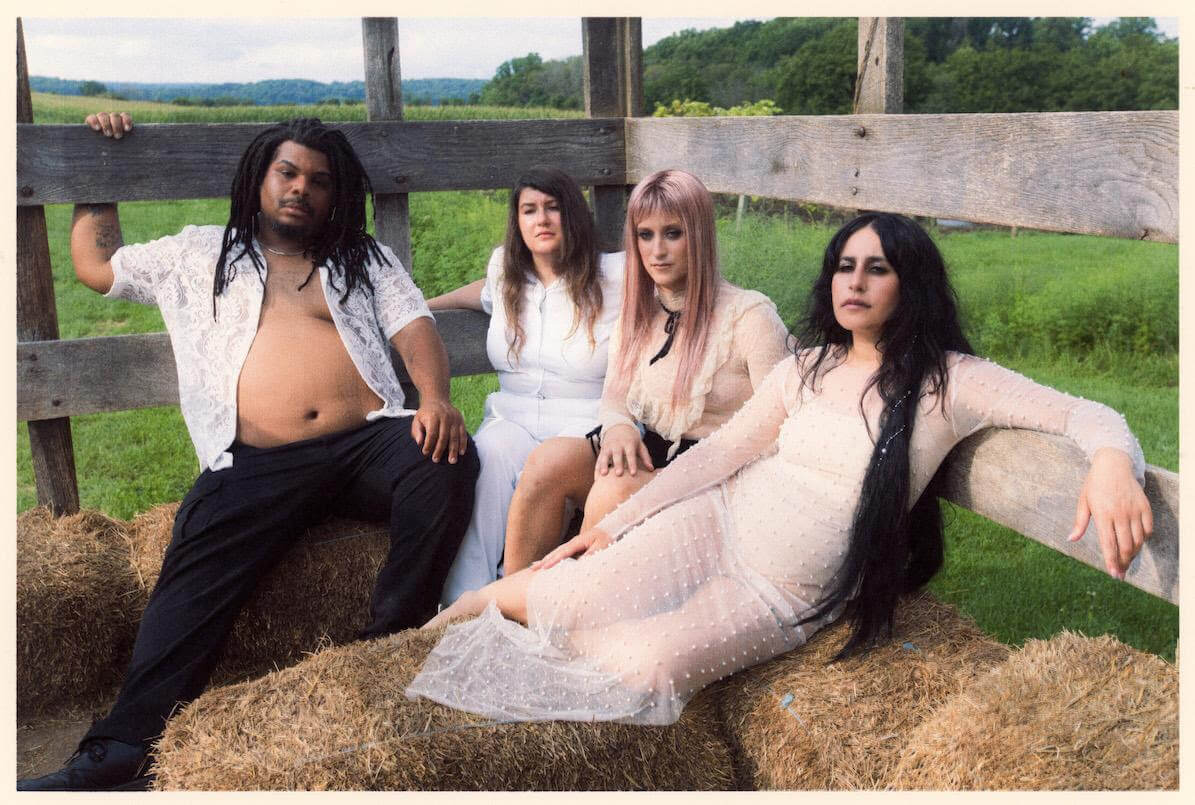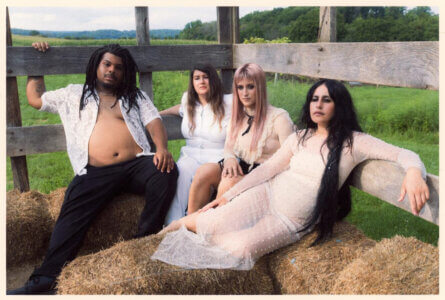Mannequin Pussy Lean into Tenderness

Explosive yet tender, Mannequin Pussy make music for the feeling you get when you finally tell someone “I fucking love you.” There is an intimacy and ferocity imbued within their music that feels entirely impossible to ignore – but why would you? On their newest album I Got Heaven, the group leans unapologetically into the cavernous space between tenderness and rage, vulnerability and love. We spoke with guitarist and songwriter Marissa Dabice ahead of the record’s release to chat about her relationship to songwriting, her bandmates and how her own creative utility and relationship to anger has evolved over time.
Northern Transmissions: Firstly, thanks for taking some time to chat with me — and congratulations on a fantastic album. There’s so much in between Patience and I Got Heaven (including a pandemic). What are your feelings now that the record is out?
Marissa Dabice: A bit of surrealism. I think that It’s hard to remember sometimes that something you’ve worked on… like I know the material so well I know that works so well that it’s still a secret for just a little bit more – and now that secret has kind of been revealed.
NT: Well as a personal aside, I mean, I’ve seen you guys play so many times. The first DIY show was you guys at Death by Audio, like 10 years ago at this point. So 10 years later, how do you see the evolution of your own songwriting?
MD: Well it’s always the hope that something that you’ve been doing for that long takes on its own natural evolution, that you’re not just kind of stuck in the same place that you were 10 years ago, whether that be mentally, spiritually or artistically. So it’s kind of nice to have these markers of our own growth and exploration.
NT: And I’m sure a lot of songwriting has gotten easier, but has anything gotten harder?
MD: In terms of songwriting? Oh, I don’t think anything’s gotten harder there. There’s still emotions to be excavated and experiences to be explored. Perhaps there’s a part of me that could say that as you get older and your taste matures, maybe it’s harder sometimes to impress yourself with something that you’re working on that’s still kind of aligned with your taste. But then again, I would say that I Got Heaven as an album is completely aligned with our personal tastes for music right now. I think it’s very much kind of like the first MP record where if another band made this record, I think I would be obsessed with it.
NT: I know Kaleen and Collins have been mainstays in the group for a long while. That’s a long time to play music with someone – how have you come to understand your bandmates differently through the years and how have those relationships changed? I’m sure it feels like a family in many ways.
MD: It very much is. I feel so extraordinarily lucky to have found this group of creative collaborators and to also just to be in a group of people who over the last couple of years have all really committed to their own kind of personal work. It’s been truly beautiful just to see the way that everyone’s progressed and gotten better at communicating and better at loving themselves and better at not searching out external validation and better at ego and better at just everything that helps serve the group.
In almost like an enlightening and inspiring way, when you see some of the people that you’re closest to starting their own transformations, it reminds you that you need to be committed to those transformations for yourself as well.
NT: I feel like anger is an emotion that many people might be generally uncomfortable with sitting with. What, In your own creative process, is the creative utility of anger and how has your relationship to it changed over the years
MD: They do tell you that your anger lessens as you get older, and I think that’s a lie. I think for anyone who’s kind of attuned and aware of the state of the world, to the state of the government in which we live under, I don’t think it’s possible to not feel that sense of anger all the time. I think what happens actually is that you get better at coexisting with it, where you’re better at compartmentalizing it and you’re better at accessing it when you need to.
Whereas I think when you’re younger, or at least for me in my twenties, it was definitely this all- consuming thing. My rage was really kind of like the singular focus of my life and the singular emotion I felt a lot of days. Now it’s kind of like an old lover that you’ve really settled into a comfortable relationship with, and you just know how to communicate with one another.
It serves as a mode of inspiration and an artistic drive to kind of exorcize this anger and have a place to put it. I think anger now looks different to us as songwriters. Where In the past to me anger was only represented as something that had the soundtrack of screaming to it, now I think we’re a little bit more adept at the different ways that we can explore that.
Order I Got Heaven by Mannequin Pussy HERE
Latest Reviews
Tracks
Advertisement
Looking for something new to listen to?
Sign up to our all-new newsletter for top-notch reviews, news, videos and playlists.









